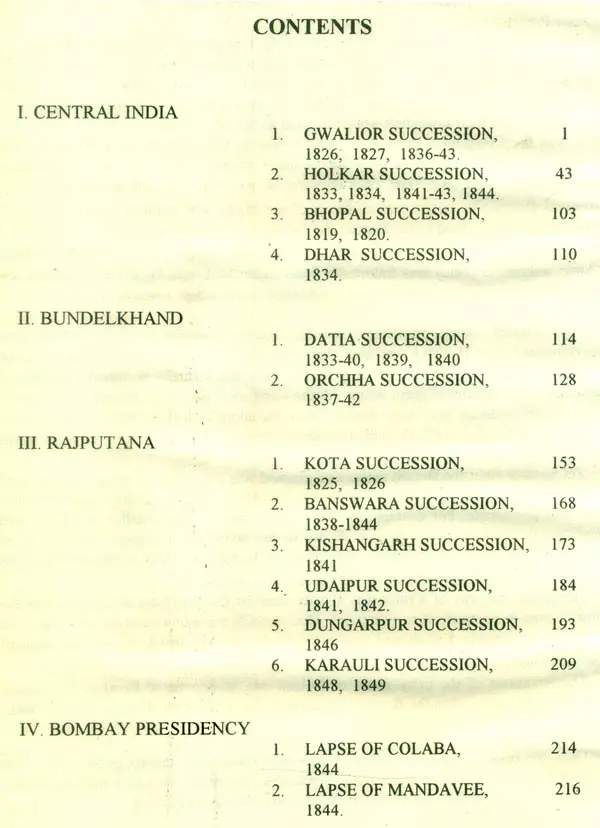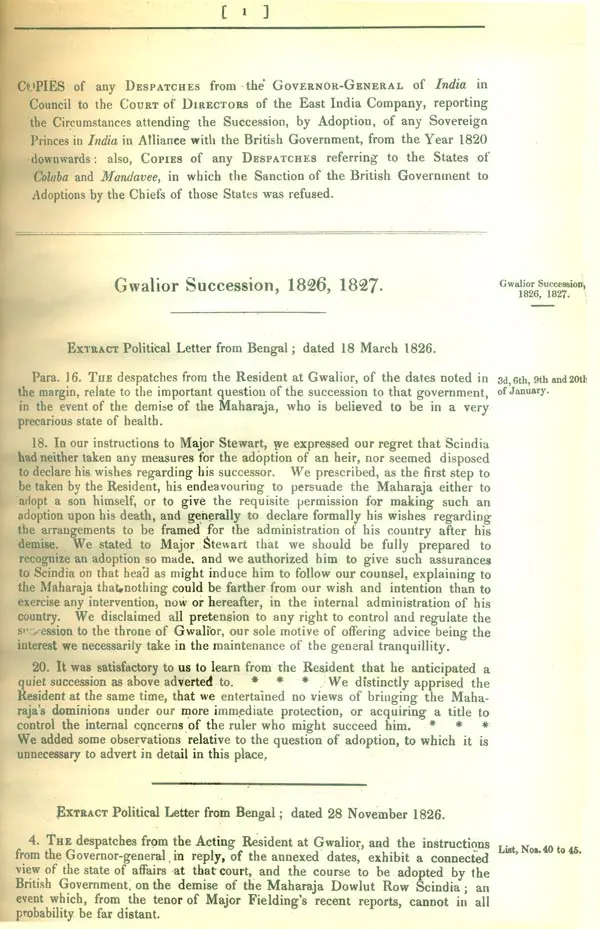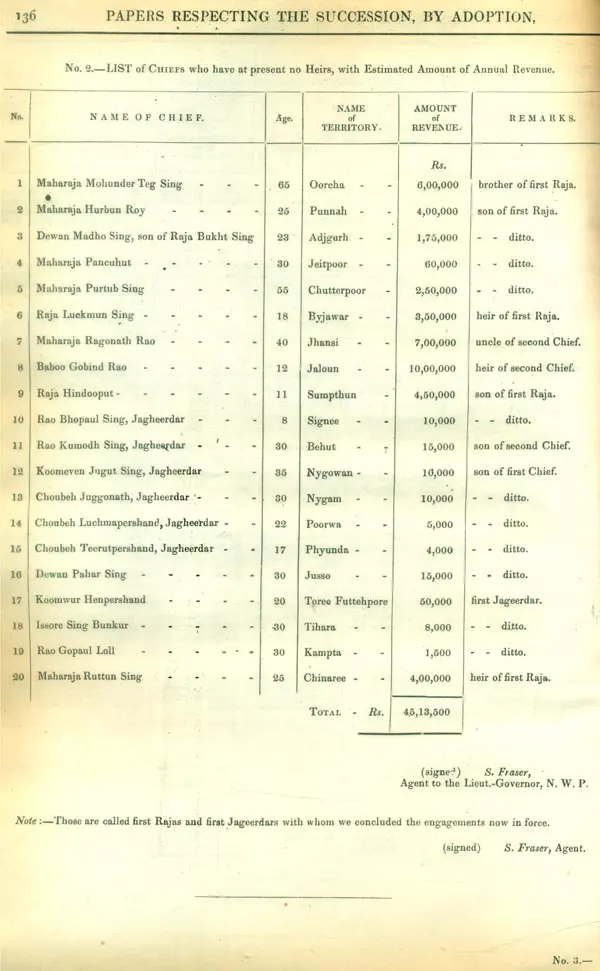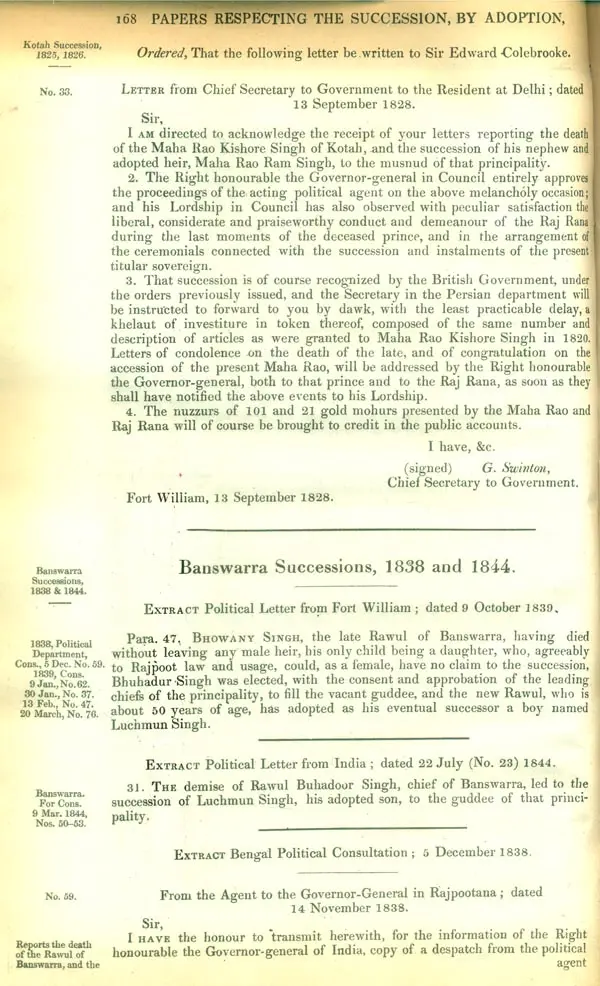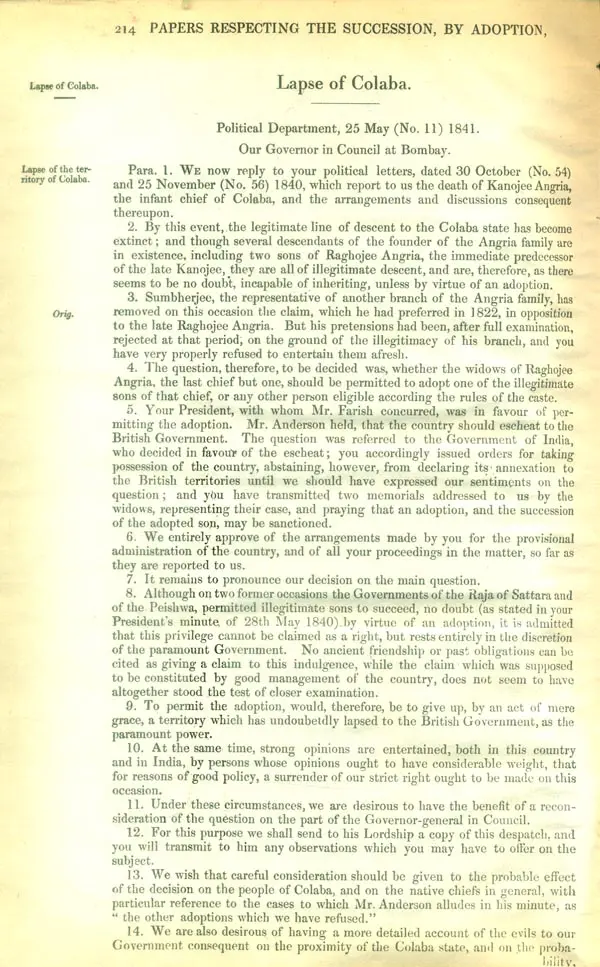
Papers Respecting The Succession of Sovereign Princes in India (An Old and Rare Book)
Book Specification
| Item Code: | UAD292 |
| Author: | Sir Edward Colebrooke |
| Publisher: | Publication Scheme, Jaipur |
| Language: | English |
| Edition: | 1993 |
| ISBN: | 8185263698 |
| Pages: | 232 |
| Cover: | HARDCOVER |
| Other Details | 12.00 X 8.00 inch |
| Weight | 780 gm |
Book Description
In those days, the interference of the East India Company in the internal affairs of the various states of India was a dominant feature and the succession issue was no exception to it. Since the British held the key to the assumption of state authority, they always favored the succession of those who might serve their interests with unswerving loyalty. They always used their discretion whenever such an occasion arose.
It was the Company's supreme military power in Central India and Rajputana that encouraged the British to follow the policy of intervention in settling the succession issues. K.M. Panikkar observes: "The main question on which the internal sovereignty of the states was disregarded on the basis of theory of suzerainty, was in relation to succession." 1 In the states closely allied to the British, the Company' regulated succession as a matter of practice. But in the states (like Gwalior) which were recognized to be in independent alliance, a different policy was followed.'2 Thus, when Maharaja Daulat Rao Sindhia was lying ill in 1825, the British Government had urged him to adopt a successor.
The political unrest, resulting from the disputed successions, created sufficient opportunities for the British to establish their supremacy in the states of Central India and Rajputana. The British representatives posted in the states virtually occupied a position of dominance in the affairs of these states. All the same, the right of the British authorities to intervene and. to decide was never denied. When the adoption had not been made in public or when the ruler
The age of majority of a ruler was usually fixed by the Britishers at eighteen, but the tendency was to postpone it to twenty-one. Occasionally the administration was placed in the hands of a partly British and partly Indian Council, in which the British element necessarily had the final word.
The territories of the petty states of Colaba and Mandavee of Bombay Presidency were, however, annexed to the British territories on the death of their rulers and the states became extinct forever.
Thus, the book contains a number of important documents relating to the succession issues of the -states of Central India and Rajputana. It, therefore, provides a primary source material for the researchers interested in succession issues of these states.
Book's Contents and Sample Pages
